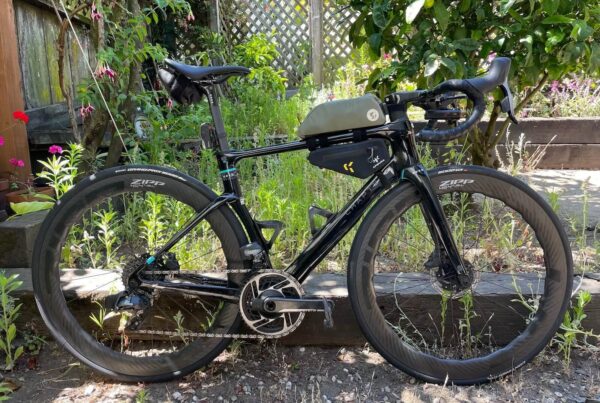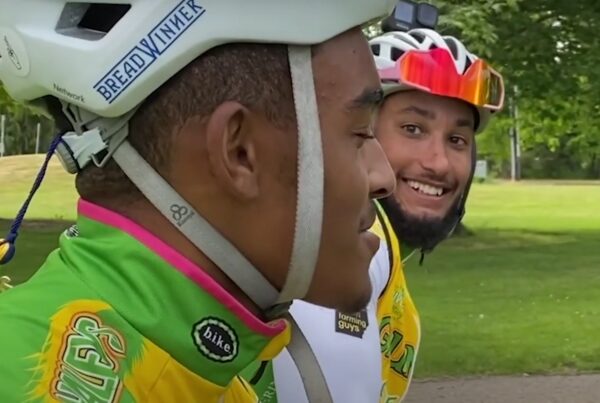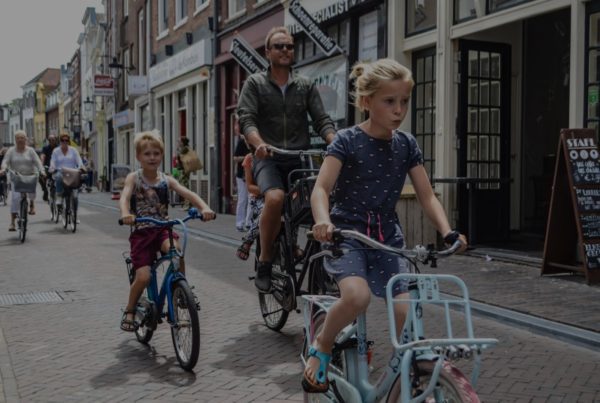Now I’ve done it.
Last week, I wrote about two fatal collisions in San Jose, California this July.
Only instead of saying “fatal collisions,” I used the words “Two Fatal Bicycle Accidents In San Jose, California This July.” And some people let me know about it. So I think this is a great opportunity to have a conversation about how we talk about collisions between drivers and cyclists.
I’ll begin by saying “I get it.” I’ve been writing about these issues for a long time, and I’ve been using “crash” or “collision” instead of “accident” for a long time. And in fact, I choose my words very carefully when I write. For example, I don’t say “reckless” when I mean “careless.” I’m a lawyer, and there’s a big difference in legal meaning between those two words, so I’m very careful about which word I use.
I’m also deliberate in choosing my words when I call out anti-cyclist bias. When I wrote that one judge’s ruling was “profoundly lacking in legal logic,” and a “half-forgotten clusterfudge of jurisprudence,” I wasn’t mincing my words. It was a bad ruling, and I said it, loud and clear. When a second judge made the same ruling in a different case, I wrote that the previous ruling “was rising like a zombie from the grave of judicial error,” and “facts were simply no match for logic-defying myopia.”
So if I’m so careful with my words, why would I write “accident” when everybody knows I should write “crash”?
Because everybody doesn’t know I should write crash.
And I’m writing for everybody.
I’m writing for the families and loved ones of injured and deceased cyclists who may want to find whatever information they can about the crash. 11 years ago, perhaps the most tragic bicycle fatality we have ever written about occurred in Lebanon, Pennsylvania. It was a truly gut-wrenching story of unfathomable loss and justice denied, and to this day, I’ve never forgotten the loss of a young life, and the toll on her family. Some 14 months after we wrote that story, her brother wrote to us from Iraq, where he was serving, to thank us for caring about his loss. He had avoided the newspaper accounts of the crash, because of the comments that sought to excuse the drunk driver who killed his sister, but his uncle had found our article and forwarded it to him in Iraq. We made some difference in his grieving, however small, and I will forever be thankful that I could have some part in comforting him in his grief so far from his home.
I’m also writing for reporters. Many times over the years, reporters have contacted us to get Bob’s perspective on a bicycling issue. When major media outlets contact us to ask about things like cyclists getting doored, or justice for cyclists, or road rage, it’s an opportunity to educate millions of non-cyclists. And it often begins with educating the reporters. Is that a worthwhile opportunity? You bet it is.
I’m even writing for law enforcement, and yes, judges too. I’m not shy about calling them out when they deserve to be called out, but I am also quick to give them much-deserved recognition when they get it right. I know for a fact that law enforcement officers read the articles we write, and if I can explain why bad examples of law enforcement are wrong, and why good examples of law enforcement are right, I’m helping to educate law enforcement officers on these issues, and that helps them to do a better job.
So yes, I’m writing for cyclists, but I’m also writing for a lot of non-cyclists out there, some of whom have the ability to profoundly affect how we are treated on the roads, and in the courts. And the reality is that when non-cyclists search for information about car-on-bike collisions, they’re not going to type “bicycle crash” into the search bar. They’re going to type the most common term that comes to mind, and that term is “bicycle accident.” That’s not the only search term people use when researching bicycle stories, but it’s a major search term and can’t be ignored. That might ruffle the feathers of experienced cyclists, but that’s still the reality of how searches are conducted. And if I want to reach beyond the relatively small circle of cyclists who already “get it,” I have to use the terms that people actually use when they search for information.
But that’s where it gets interesting. While the words “bicycle accident” in the title stood out like a sore thumb for some readers, less noticed was what came after. Bicycle accident morphed into “crash” and “collision.” It even morphed into bicycle “accident” with quotation marks and a link to a page explaining why cyclists prefer to use the words “crash” or “collision” instead of “accident.” What I had actually done was explain why we don’t call car-on-bike collisions “accidents.”
Still, I’ll concede that my effort to educate may have been too subtle for some tastes. Perhaps I should have stopped, explicitly explain why we don’t call collisions “accidents,” and then move on to my real point, which is that there’s a glaring “donut hole” in our traffic laws that needs to be addressed “if we want true safety on our roads and true justice in our courts.”
So it’s a continuous process of refinement. “Could I have said that better?” is a question I ask myself every time I write. Even after an article is published, I ask myself that question. So perhaps I need to be a little more explicit in my explanation the next time I use the word “accident.”
But as long as “accident” is the word people use most often (note that law enforcement has shifted away from “accident,” to “crash” or “collision”—progress! Note also that the media in this fatal crash story explicitly called it a “crash”—more progress!!), that word will necessarily be a part of stories about car-on-bike collisions, even if only to educate people about why we don’t use “accident” to describe these collisions. It might rankle some in the cycling community to see the word “accident,” but if we want to educate non-cyclists about car-on-bike collisions, the first step is to help them find what they’re searching for. And that means using words the way they use words.
The second step is helping them to understand. So for all of the non-cyclists out there, here’s the truth about “bicycle accidents.” Because somebody is virtually always at fault in a collision, many cyclists strongly prefer to avoid using the word “accident” to describe these incidents. The word “accident” suggests that nobody is to blame—an unavoidable tragedy, if you will—when in fact somebody did cause the collision. While the vast majority of collisions are unintentional, it is still almost always that case that somebody is at fault in the collision. For these reasons, cyclists prefer to use neutral words like “crashes” or “collisions,” instead of “accidents,” because these neutral words are less likely to suggest that nobody is to blame.
And for all of the cyclists out there, what I’ve just done—explain an issue from a perspective that somebody may not have even considered previously—is what I’m doing in every story. Even the story about the two fatal “bicycle accidents” in San Jose.
It can be comforting to preach to the choir, but it’s far more rewarding when you can help somebody understand the world in a way that never occurred to them before. It’s why I carefully explained the arguments in support of Stop as Yield. It’s why I’ve written about imaginary laws and the cops who enforce them. It’s why I’ve explained how the automotive industry flipped the script on traffic safety. It’s why I’ve written about the “donut hole” between a minor traffic infraction like “Failure to Yield” and a serious traffic crime like “Hit and Run” or “Vehicular Manslaughter.”
And it’s why I’ll continue to help non-cyclists understand why we say “crash” or “collision” instead of “accident.”
But first, I have to help them find the article.




